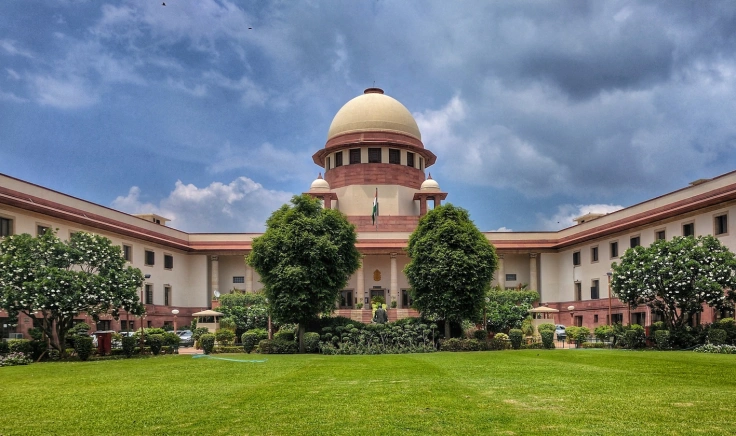In a landmark ruling reinforcing service autonomy, the Supreme Court of India quashed Madhya Pradesh’s attempt to allow IAS officers to write performance reports of Indian Forest Service officers. The Court held the State in breach of earlier directives, affirming that only senior officers within the IFS cadre can assess their peers up to the rank of APCCF.
Reasserting Cadre Sovereignty and Constitutional Discipline
In a significant reaffirmation of inter-service boundaries, the Supreme Court of India on May 21, 2025, quashed a Government Order (GO) issued by the State of Madhya Pradesh that permitted IAS officers to author Annual Confidential Reports (ACRs) of officers belonging to the Indian Forest Service (IFS), up to the rank of Additional Principal Chief Conservator of Forests (APCCF). The verdict upholds long-standing judicial precedents that emphasize cadre-specific supervision and was delivered by a bench comprising Chief Justice BR Gavai and Justice AG Masih.
The Court held the order “totally in violation” of prior directions issued in the landmark Santosh Bharti v. State of Madhya Pradesh (2007) and other rulings dating back to 2000 and 2004. The ruling is seen as a strong signal to states attempting to dilute or sidestep judicially protected autonomy of the All India Services.
ALSO READ: FCRF Launches Campus Ambassador Program to Empower India’s Next-Gen Cyber Defenders
Judicial History and Inter-Cadre Hierarchy Disputes
The ruling reiterates core judicial principles from earlier verdicts. In State of Haryana v. P.C. Wadhwa (1987), the Court had categorically held that a reporting authority must be higher in rank than the officer being evaluated. In the Santosh Bharti case, the Court went further, restricting ACR writing for IFS officers strictly to senior IFS officers, with an exception only for the Principal Chief Conservator of Forests (PCCF), whose superior may be from a different service provided they are familiar with the officer’s work and senior in rank.
Madhya Pradesh’s June 29, 2024 GO attempted to authorize District Collectors (IAS) and Divisional Commissioners (IAS) to comment on the Performance Appraisal Reports (PARs) of Divisional Forest Officers, Conservators, and APCCFs. The Supreme Court deemed this a direct contravention of binding precedents and warned of systemic erosion of cadre-specific assessments.
The Court also referred to the 2024 precedent in State of Assam v. Binod Kumar, which quashed an Assam rule allowing a civil service officer to be the reporting authority for an SP-ranked police officer, again citing constitutional service norms.
Supreme Court Warns of “Supremacy Syndrome” in IAS-IFS Relations
During oral arguments, Chief Justice Gavai made a rare candid observation, highlighting persistent friction among India’s elite civil services. “In my experience as a government pleader for 3 years and a judge for 22 years, I can tell you—IAS officers want to show their supremacy over IPS and IFS officers…there is always a conflict,” remarked the CJI. His statement struck a chord with longstanding sentiments within the IFS and IPS cadres, who have historically voiced concerns over bureaucratic hierarchy distortions.
The Court’s ruling emphasized that no other State in India follows the model adopted by Madhya Pradesh. In fact, the Ministry of Environment and Forests (MoEF) had written to all States way back in 2001 instructing that ACRs of IFS officers should be written only by immediate IFS superiors up to the APCCF level.
Senior Advocate K Parameshwar appeared as amicus curiae, and Solicitor General Tushar Mehta represented the State of Madhya Pradesh. While the Court stopped short of initiating contempt proceedings, it unambiguously directed the State to amend its rules in compliance with the existing legal framework and the Court’s earlier binding orders.
Implications: Protecting the Integrity of All India Services
The ruling reinforces the principle of administrative fairness and service parity in India’s All India Services structure. The Annual Confidential Report (ACR) remains a critical document that determines promotions, postings, and service reputation. Allowing officers from another cadre—however senior administratively—to evaluate members of a different service poses risks of bias, lack of subject expertise, and institutional imbalance.
This decision also indirectly curbs the centralization of power within the IAS cadre, restoring professional autonomy to specialized services like the IFS. Governance experts see this ruling as essential to preserving functional competencewithin departments such as forest conservation, wildlife protection, and environmental policy, which require domain-specific evaluations rather than generalist administrative reviews.


